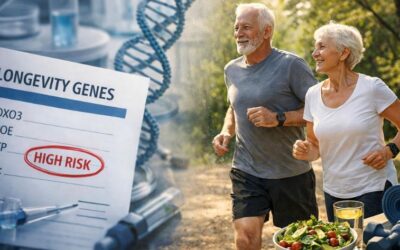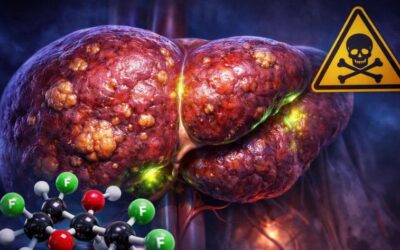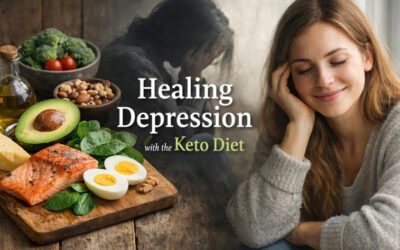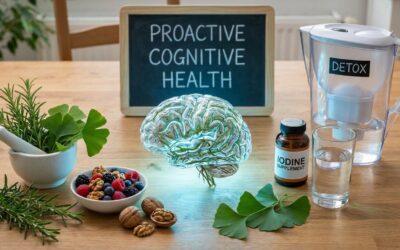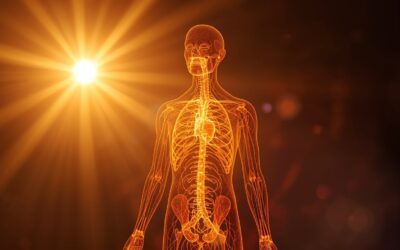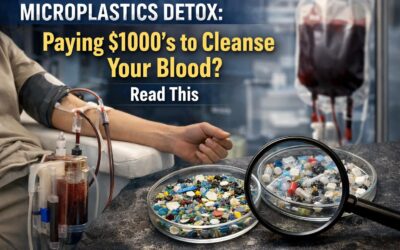In a study published this week, researchers have highlighted the face that those on a plant based diet are likely to be suffering from iodine deficiency.
Researchers from UK agency Biobank Cohort divided participants into six diet groups: high meat-eaters, low meat-eaters, poultry-eaters, pescatarians (those who eat fish but no other meat), vegetarians, and vegans. They followed these individuals for 12 years to see who developed hypothyroidism during that time.
Here’s what researches found found:
- Hypothyroidism cases were most common among vegetarians (3%) and vegans (3%), slightly higher than the 2% seen in high meat-eaters.
- After adjusting for body mass index (BMI), vegetarians showed a statistically significant increase in hypothyroidism risk.
- Interestingly, no increased risk was found for vegans when looking at new cases (incident hypothyroidism)—though the number of vegan participants was very small, which may have limited the power of the analysis.
- Pescatarians had a modestly increased risk for existing (prevalent) hypothyroidism at the start of the study, particularly after adjusting for BMI.
Vegetarians tend to have lower cholesterol levels than non-vegetarians, which is another factor that may play a role in their overall health profile.
Vegetarian Health: Why Iodine Is the Missing Piece of the Puzzle
Iodine is essential for your thyroid to produce hormones. Without it, the body can’t make enough thyroxine (T4) or triiodothyronine (T3), which controls everything from metabolism and body temperature to cognitive function and detox pathways. The World Health Organization recommends at least 150 micrograms of iodine daily for adults and 200 micrograms for pregnant or breastfeeding women.
So here’s where it gets interesting: when researchers looked at iodine intake in a subsample of over 200,000 participants, they found:
- 92% of vegans were not meeting the recommended iodine intake
- 44% of vegetarians fell short
- Even 33% of poultry eaters were below the iodine threshold
Among vegetarians, there are several subgroups: lacto ovo vegetarians eat both dairy foods and eggs, lacto vegetarians include dairy foods but avoid eggs, and other types like vegans exclude all animal-derived foods. While lacto ovo vegetarians and lacto vegetarians may get some iodine from dairy foods or eggs, most vegetarians—including these groups—may still fall short on iodine unless they consume fortified foods or specific vegetarian sources of iodine.
Iodine deficiency is not just a “vegan problem”—it’s a universal pandemic. Our food supply no longer contains the iodine levels to sufficiently feed our thyroid. In some countried the government actually supplies iodine supplementation at no cost due to the health issues from the lack of iodine and it’s strain on the health system.
Beyond Your Diet, What’s Blocking Your Iodine?
It’s not just what you’re missing in your diet but also what’s getting in the way.
96 percent of the United States is Iodine Deficient; not just vegans.
Modern life has introduced new enemies of iodine; these are known as halogen disruptors: chemicals like fluoride, bromine, and chlorine that are structurally similar to iodine and compete for the same receptor sites in your body. They are in our water, air, diet, household products, and more. The amount of these toxins has increased exponentially in the last few decades while iodine from our soils and our iodized salt has diminished. This extreme discrepancy has led to making the climb of all chronic diseases much worse, including Hypothyroidism.
Signs of Hypothyroidism
- Chronic fatigue
- Eyebrows thinning
- Water retention
- Hair thinning
- Unexplained weight gain
When the body is deficient in iodine, these other molecules that look the same fill those receptor sites, leading to mitochondrial decline, cellular death, and lead to chronic disease.
This process is known as halogen displacement.
And it doesn’t stop there. These chemicals can also inhibit the production of thyroid hormones, a phenomenon known as chemical inhibition. They not only prevent iodine from being absorbed by the cells, but they also damage the entire hormonal system that allows your metabolism, mood, energy, and detox pathways to function optimally.
Iodine doesn’t just help thyroid health. Iodine is needed for the following:
- Increases ATP in the mitochondria. Mitochondrial decline is the cause of all diseases.
- Supports cell membrane health which allows toxins out and nutrients into the cells..
- Cleanses the blood so the liver can do its job of detoxifying the body
- Helps kill foreign pathogens including viruses, bacteria, parasites, and candida.
- Improves IQ and cognitive function
- Alleviates anxiety and depression
In short, we’re not just facing iodine deficiency—we’re facing an iodine crisis, driven by chemical interference our ancestors never had to deal with.
Are “Healthy” Vegetables Causing More Harm Than Good?
Cruciferous vegetables that are deemed “healthy” contain goitrogens—natural compounds found in otherwise healthy foods like kale, broccoli, cauliflower, and soy. These compounds can inhibit iodine absorption in the thyroid by interfering with iodine uptake.

For vegans and vegetarians who eat more of these foods than those on a mixed diet could be making their thyroid health even worse by blocking the little iodine they are consuming with these so-called “healthy” foods.
To make matters worse, the sulfur content in these foods can back up the liver, as most people suffer from impaired sulfur detoxification pathways; glyphosate and other environmental toxins have created this issue that was not an issue for our ancestors.
Oxalates are another “healthy” vegan food that could worsen iodine deficiency and hypothyroidism.
Oxalates are found in foods like spinach, kale, beets, almonds, most nuts, chocolate, berries, and kiwis. They bind to minerals in the body look like “toothpicks” and lodge themselves into tissues and organs including the kidneys, gut, brain, and thyroid. Oxalates also block iodine uptake in the thyroid and worsen hypothyroidism. Green leafy vegetables, while rich in nutrients such as folic acid and vitamin C, can also contribute to oxalate load and may impact iodine absorption.
Many people increase their intake of green leafy vegetables as part of a healthy diet or for weight control, but should be aware of the potential impact on iodine status. Vegans and vegetarians tend to eat more oxalates than meat eaters and this could contribute to the higher incidence of thyroid issues and iodine deficiency.
Sara’s Solutions
Vegetarian diets are more sustainable and environmentally sound than diets that rely heavily on meat, poultry, and fish, which is another reason they are gaining popularity.
Here’s what you can do:
- Get your full thyroid panel levels tested—don’t guess. That includes TSH, Free T3, Reverse T3, Total T4, and the thyroid antibodies. Most doctors only test TSH and T4, which doesn’t tell the whole story.
- Eliminate Oxalates from your diet. These foods, including spinach, almonds, kale, beets, most nuts, berries, and sweet potatoes, block iodine absorption and lead to hypothyroidism, brain fog, water retention, leaky gut, slowed detoxification, and more.
- Eliminate Sulfur foods. These foods, including broccoli, cauliflower, kale, onions, garlic, egg yolks, and cabbage, back up the liver, inhibit detoxification, and slow metabolism.
- Supplement with Acceleradine® Iodine.
Iodine is one of those nutrients that subtly function in the background, but its impact spans almost all areas of your body. It is vital to your entire body, not just the thyroid. However, it tends to be undervalued and overlooked in today’s context.
Iodine is the body’s building block for making thyroid hormones T3 and T4 (3 and 4 stand for 3 and 4 molecules of iodine), which are produced in the thyroid gland and essential for life. These hormones are referred to as master regulators. They control your metabolism, energy levels, mood, brain function, body temperature, and even the efficiency of fat-burning. If you have low iodine levels, your thyroid hinders the production of these hormones, and the whole body is affected. Everything—energy, metabolism, digestion, mental clarity, motivation—starts to slow down.
The Importance of Iodine for Overall Health Benefits
The importance of iodine does not stop with the thyroid alone. It is essential for a strong immune system. Iodine helps fight infections as a natural antibacterial, antiviral, and antifungal agent. The parts of the body where iodine is most concentrated are the sinuses, the lungs, the gut lining, the breast tissue, and the reproductive organs; all these regions are important for immune defense and in fighting off infections.
Iodine also plays a significant role in maintaining hormonal balance in hormonal and mitigating symptoms of estrogen dominance. It has been known to help eradicate excess estrogen from the system which leads to better hormonal equilibrium. This is especially helpful in today’s toxic world with endocrine disruptors increasing estrogen dominance in men and women.
A healthy diet rich in plant foods, unsaturated fats such as olive oil and canola oil, and starchy foods like wholegrain bread, rice, and potatoes can provide health benefits and help manage risk factors for chronic disease. Weight loss and weight control, along with adequate iodine intake, are important for reducing risk factors and supporting overall health.
Iodine is essential for optimal cellular detoxification. It works to displace and eliminate halogens such as fluoride, bromide, and chlorine which are found in tap water, certain medications, and food that has gone through processing. Commonly referred to as ‘processed’ food. Such halogens compete with iodine for the same receptor sites present in the cells; if these halogens win, cellular dysfunction, thyroid suppression, and increased toxicity take place.
More subtly, iodine affects focus, cognition, IQ, mood, protection of DNA, and the strength of every single cell in your body. Every single cell has receptor sites for iodine and that includes the brain, the pancreas, the ovaries, the prostate, indeed, the immune cells, and every part of you. When there is no iodine, it does not only slow down the system, it becomes vulnerable.
Iodine deficiency isn’t always classic hypothyroidism. It can also manifest as brain fog, anxiety, hormonal imbalances, skin issues, hair thinning, irregular periods, infertility, and chronic fatigue.
Deficiency is far more prevalent than most people realize, especially in today’s world riddled with halogen toxins and lacking iodine-rich soil.
Iodine and Heart Health: The Overlooked Connection
When we think about heart health, nutrients like omega-3 fatty acids and fiber often come to mind, but iodine is an essential piece of the puzzle that’s frequently overlooked. Iodine plays a vital role in supporting healthy thyroid function, which in turn helps regulate heart rate, blood pressure, and cholesterol levels. Without enough iodine, the thyroid can’t produce the hormones needed to keep your cardiovascular system running smoothly, increasing the risk of heart disease.
This connection is especially important for those following a vegetarian diet or vegan diet, as these eating patterns often exclude some of the richest sources of iodine, such as seafood and dairy products. While a well-planned vegetarian or vegan diet can provide many health benefits, it’s crucial to ensure you’re getting enough iodine to protect your heart. Including iodized salt, seaweed, and dairy products (for those who consume them) can help bridge the gap. For those who avoid animal foods entirely, dietary supplements may be necessary to meet daily iodine needs. A vegetarian diet can also contribute to lower blood pressure, which is another benefit for heart health.
It’s also important to remember that more isn’t always better—excessive iodine intake can negatively impact heart health, so balance is key. By understanding the link between iodine and heart health, and making informed choices about your diet and supplements, you can help reduce your risk of heart disease and support overall wellness.
Gut Health, Nutrition, and Iodine Absorption
A thriving gut is the foundation of healthy eating and optimal nutrient absorption—including iodine. For those on a vegan diet or vegetarian or vegan diet, supporting gut health is especially important, as plant based diets rely on the body’s ability to efficiently absorb essential nutrients from plant based foods.
Eating a balanced diet rich in whole grains, fruits, vegetables, and legumes helps nourish the gut microbiome, which plays a key role in how well your body absorbs iodine. Fermented plant based foods like kimchi, sauerkraut, and tempeh can further boost beneficial gut bacteria, enhancing nutrient uptake. On the other hand, consuming too many saturated fats or refined carbohydrates—sometimes found in processed vegetarian or vegan products—can disrupt the gut microbiome and hinder iodine absorption.
It’s also worth noting that some plant based foods, such as soy products and cruciferous vegetables, can interfere with iodine uptake if eaten in large amounts, especially in the context of a vegetarian or vegan diet. That’s why it’s important to plan your meals carefully, focusing on variety and moderation, to ensure you’re getting the most from your plant based eating patterns. By prioritizing gut health and nutrition, you can help your body make the most of the iodine you consume and reduce your risk of deficiency.
Iodine Needs During Pregnancy: Protecting the Next Generation
Pregnancy is a time when nutrition matters more than ever, and iodine is no exception. For women following a vegan diet or vegetarian or vegan diet, meeting increased iodine needs is essential for the healthy development of the baby’s brain and nervous system. Inadequate iodine intake during pregnancy can lead to serious developmental problems and birth defects, making it a critical nutrient for expectant mothers.
The recommended daily intake of iodine rises during pregnancy, so it’s important to include iodine-rich foods like dairy products, iodized salt, and seaweed in your diet. Some breakfast cereals and breads are also fortified with iodine, offering additional options for those on plant based diets. For women who avoid animal products, dietary supplements may be necessary to ensure adequate intake.
Every pregnancy is unique, so it’s wise for vegetarian and vegan pregnant women to consult with a health professional to tailor their dietary patterns and discuss the best sources of iodine for their needs. By prioritizing a well-planned vegetarian or vegan diet that includes a variety of plant based foods and fortified products, mothers can help protect their baby’s health and set the stage for a healthy start in life.
Different Iodine Sources
Most iodine supplements are derived from sources in the ocean, often harvested around Asia where radiation disasters like Fukushima have contaminated a large portion of the iodine supply.
A large proportion of these supplements are also diluted with glycerin or inferior-quality alcohol resulting in poor absorption by the body.
Acceleradine® Iodine is unlike anything else. It is derived from untouched pollution-free earth sources from the depths of South America. It is in monatomic form which means it is one-atom iodine, making it close to 100% bioavailable, and the body can fully recognize and absorb it.
The iodine is then suspended in 200-proof organic non-gmo grain alcohol, making the cellular delivery optimal. Unlike glycerine-based solutions, which are sticky and heavy, Acceleradine® Iodine is thinner and instantly absorbed. Glycerine-based solutions are slow to absorb.
Take Your Health to a Higher Level
Most people fail to consume enough protein for optimal health, and vegans even more so. Not only is it difficult to eat enough food to reach the goal of 1 gram of protein per pound of body weight, but vegan protein foods also tend to be incomplete in all essential amino acids; when the exact ratio of all nine essential amino acids is not consumed together, the body can’t use it! Vegetarian sources of protein, such as legumes, soy, and dairy for lacto vegetarians, as well as animal protein from eggs or dairy for those who include them, can help meet protein needs and improve protein quality in the diet.
To fill in the gap, Accelerated AMINOS™ can provide the missing Essential Amino Acids in the exact ratio the body needs. But Accelerated AMINOS™ goes beyond the typical EAA supplement; it includes ingredients known to prevent muscle breakdown, enhance ATP production and energy, and increase absorption of all of your dietary nutrients. This is essential for a food supply that is lacking the needed minerals and vitamins our ancestors once had.
Accelerated AMINOS™ achieves 99% absorption and supports the maintenance and rebuilding of lean muscle, metabolism, recovery, and key structural tissues organs, and glands responsible for regulating thyroid functions. They are delivered fully pre-digested, taking mere minutes to absorb, and causing no stress to the digestive system.
Final Takeaway
As more people move toward plant-based diets for health and ethical reasons, we must also address the nutritional blind spots that come with them. Many experts agree that a more plant-based diet is beneficial for everyone, not just vegetarians.
This study sheds light on one of the biggest: iodine deficiency and its connection to thyroid health.
Even if you’re eating clean, staying active, and doing “everything right,” a lack of iodine—combined with today’s environmental exposures—can leave you vulnerable to fatigue, weight gain, hair loss, anxiety, and other signs of thyroid imbalance.
Your diet is your foundation. But iodine? That’s the spark your thyroid needs to truly thrive.
Sara Banta
Sara Banta is a Stanford University Graduate with a Degree in Economics and Psychology, and a certified Natural Supplement Expert & Graduate of the Institute for Integrative Nutrition. Sara is the Founder of Accelerated Health Products and host of the health & wellness podcast, Accelerated Health Radio.
- Sara Banta
- Sara Banta
- Sara Banta
- Sara Banta
- Sara Banta
- Sara Banta
- Sara Banta
- Sara Banta
- Sara Banta
- Sara Banta
- Sara Banta
- Sara Banta
- Sara Banta
- Sara Banta
- Sara Banta
- Sara Banta
- Sara Banta
- Sara Banta
- Sara Banta
- Sara Banta
- Sara Banta
- Sara Banta
- Sara Banta
- Sara Banta
- Sara Banta
- Sara Banta
- Sara Banta
- Sara Banta
- Sara Banta
- Sara Banta
- Sara Banta
- Sara Banta
- Sara Banta
- Sara Banta
- Sara Banta
- Sara Banta
- Sara Banta
- Sara Banta
- Sara Banta
- Sara Banta
- Sara Banta
- Sara Banta
- Sara Banta
- Sara Banta
- Sara Banta
- Sara Banta
- Sara Banta
- Sara Banta
- Sara Banta
- Sara Banta
- Sara Banta
- Sara Banta
- Sara Banta
- Sara Banta
- Sara Banta
- Sara Banta
- Sara Banta
- Sara Banta
- Sara Banta
- Sara Banta
- Sara Banta
- Sara Banta
- Sara Banta
- Sara Banta
- Sara Banta
- Sara Banta
- Sara Banta
- Sara Banta
- Sara Banta
- Sara Banta
- Sara Banta
- Sara Banta
- Sara Banta
- Sara Banta
- Sara Banta
- Sara Banta
- Sara Banta
- Sara Banta
- Sara Banta
- Sara Banta
- Sara Banta
- Sara Banta
- Sara Banta
- Sara Banta
- Sara Banta
- Sara Banta
- Sara Banta
- Sara Banta
- Sara Banta
- Sara Banta
- Sara Banta
- Sara Banta
- Sara Banta
- Sara Banta
- Sara Banta
- Sara Banta
- Sara Banta
- Sara Banta
- Sara Banta
- Sara Banta
- Sara Banta
- Sara Banta
- Sara Banta
- Sara Banta
- Sara Banta
- Sara Banta
- Sara Banta
- Sara Banta
- Sara Banta
- Sara Banta
- Sara Banta
- Sara Banta
- Sara Banta
- Sara Banta
- Sara Banta
- Sara Banta
- Sara Banta
- Sara Banta
- Sara Banta
- Sara Banta
- Sara Banta
- Sara Banta
- Sara Banta
- Sara Banta
- Sara Banta
- Sara Banta
- Sara Banta
- Sara Banta
- Sara Banta
- Sara Banta
- Sara Banta
- Sara Banta
- Sara Banta
- Sara Banta
- Sara Banta
- Sara Banta
- Sara Banta
- Sara Banta
- Sara Banta
- Sara Banta
- Sara Banta
- Sara Banta
- Sara Banta
- Sara Banta
- Sara Banta
- Sara Banta
- Sara Banta
- Sara Banta
- Sara Banta
- Sara Banta
- Sara Banta
- Sara Banta
- Sara Banta
- Sara Banta
- Sara Banta
- Sara Banta
- Sara Banta
- Sara Banta
- Sara Banta
- Sara Banta
- Sara Banta
- Sara Banta
- Sara Banta
- Sara Banta
- Sara Banta
- Sara Banta
- Sara Banta
- Sara Banta
- Sara Banta
- Sara Banta
- Sara Banta
- Sara Banta
- Sara Banta
- Sara Banta
- Sara Banta
- Sara Banta
- Sara Banta
- Sara Banta
- Sara Banta
- Sara Banta
- Sara Banta
- Sara Banta
- Sara Banta
- Sara Banta
- Sara Banta
- Sara Banta
- Sara Banta
- Sara Banta
- Sara Banta
- Sara Banta
- Sara Banta
- Sara Banta
- Sara Banta
- Sara Banta
- Sara Banta
- Sara Banta
- Sara Banta
- Sara Banta
- Sara Banta
- Sara Banta
- Sara Banta
- Sara Banta
- Sara Banta
- Sara Banta
- Sara Banta
- Sara Banta
- Sara Banta
- Sara Banta
- Sara Banta
- Sara Banta
- Sara Banta
- Sara Banta
- Sara Banta
- Sara Banta
- Sara Banta
- Sara Banta
- Sara Banta
- Sara Banta
- Sara Banta




